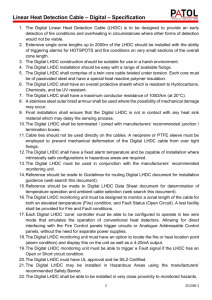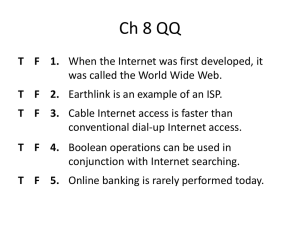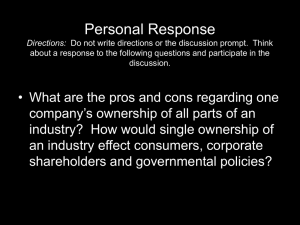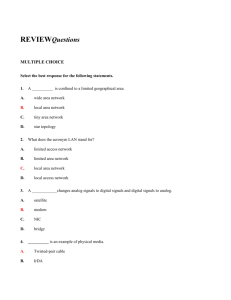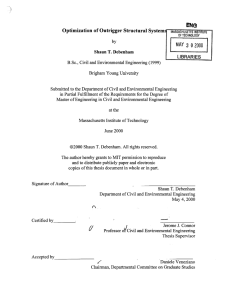Triple Play Reveals New Challenges — and Opportunities
advertisement
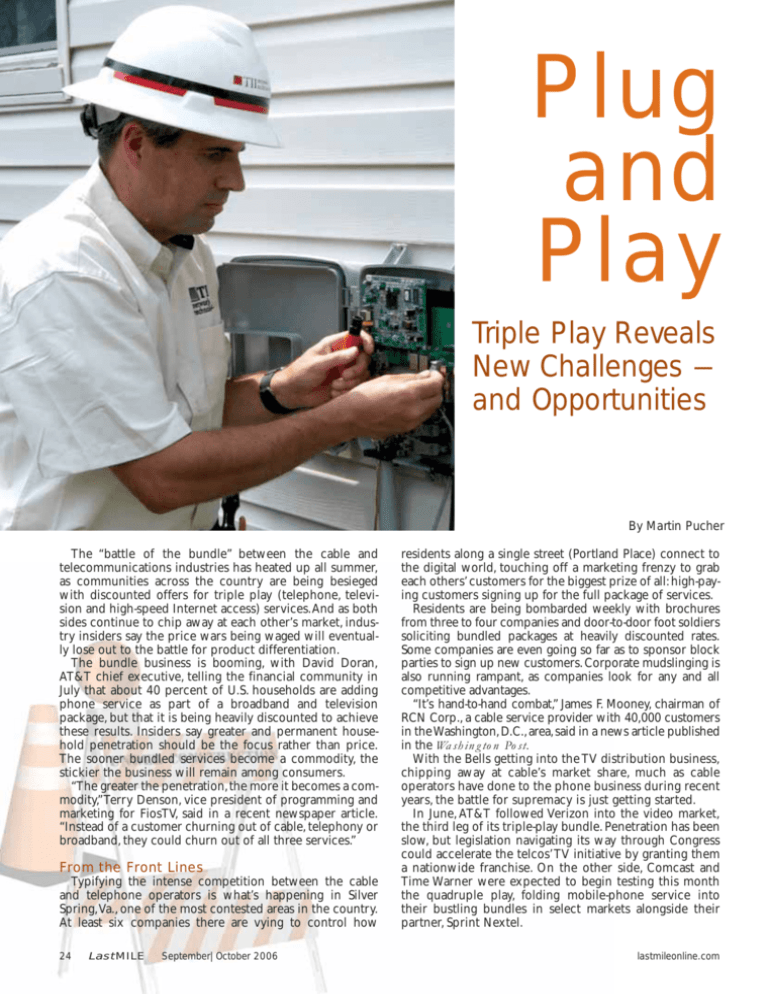
Plug and Play Triple Play Reveals New Challenges — and Opportunities By Martin Pucher The “battle of the bundle” between the cable and telecommunications industries has heated up all summer, as communities across the country are being besieged with discounted offers for triple play (telephone, television and high-speed Internet access) services.And as both sides continue to chip away at each other’s market, industry insiders say the price wars being waged will eventually lose out to the battle for product differentiation. The bundle business is booming, with David Doran, AT&T chief executive, telling the financial community in July that about 40 percent of U.S. households are adding phone service as part of a broadband and television package, but that it is being heavily discounted to achieve these results. Insiders say greater and permanent household penetration should be the focus rather than price. The sooner bundled services become a commodity, the stickier the business will remain among consumers. “The greater the penetration,the more it becomes a commodity,”Terry Denson, vice president of programming and marketing for FiosTV, said in a recent newspaper article. “Instead of a customer churning out of cable, telephony or broadband, they could churn out of all three services.” From the Front Lines Typifying the intense competition between the cable and telephone operators is what’s happening in Silver Spring,Va., one of the most contested areas in the country. At least six companies there are vying to control how 24 LastMILE September|October 2006 residents along a single street (Portland Place) connect to the digital world, touching off a marketing frenzy to grab each others’ customers for the biggest prize of all: high-paying customers signing up for the full package of services. Residents are being bombarded weekly with brochures from three to four companies and door-to-door foot soldiers soliciting bundled packages at heavily discounted rates. Some companies are even going so far as to sponsor block parties to sign up new customers. Corporate mudslinging is also running rampant, as companies look for any and all competitive advantages. “It’s hand-to-hand combat,” James F. Mooney, chairman of RCN Corp., a cable service provider with 40,000 customers in the Washington,D.C.,area,said in a news article published in the Washington Post. With the Bells getting into the TV distribution business, chipping away at cable’s market share, much as cable operators have done to the phone business during recent years, the battle for supremacy is just getting started. In June, AT&T followed Verizon into the video market, the third leg of its triple-play bundle. Penetration has been slow, but legislation navigating its way through Congress could accelerate the telcos’TV initiative by granting them a nationwide franchise. On the other side, Comcast and Time Warner were expected to begin testing this month the quadruple play, folding mobile-phone service into their bustling bundles in select markets alongside their partner, Sprint Nextel. lastmileonline.com Building the Foundation Will be Key Although pre-wiring new homes for broadband-based services was one way the bundled business looked to increased penetration, residential construction is slowing and home sales are down as affordability becomes a major issue in many markets. To no one’s surprise, then, the larger market is actually in existing homes, where there are literally tens of millions of houses waiting to be upsold to triple-play services, if only they were wired correctly. With virtually all homes wired only with twisted pair for POTS and coax for CableTV, none of them will be easily or cheaply converted to triple-play subscription services. While this segment presents the greatest opportunity, it also presents a challenge. It is cost-prohibitive for service providers to wire existing homes for digital services or to provide customers with gateway devices for every application. Moreover, with home gateways, what happens when the resident moves? Oftentimes it gets taken or it simply gets lost in the transition. By that time, the service provider — even if willing to provide customers with new equipment — has lost the advantage of being able to offer the new customer instant gratification for taking a triple-play subscription. TII Network Technologies, a New York-based telecom equipment maker, is one company that has its eye on this emerging market. Its newly formed Global Technology Group (GTG) recently unveiled the OutRigger Media Access Portal, a product meant to make retrofitting homes for advanced telecommunications infrastructure faster and easier. Like a conventional NID (Network Interface Device) or utility meter, OutRigger is designed for installation on the home’s exterior, permanently locating the Triple-Play enabler outside the home where service provider premise wiring typically terminates. The device then connects to the home’s existing wiring for whole-home connectivity that links multiple devices, like PVRs, to multiple broadband inputs — removing a major obstacle to converting legacy analog customer to the digital world. Like a home power meter, devices like OutRigger stay with the home, ready for the next user. Less (Truck Rolls) Is More With intelligent NIDs, service providers can turn on more new subs in less time, as it cuts down on costly and time-consuming truck rolls for significant savings and faster turnaround times. In most cases, the technician shows up on site, secures a device to the outside of the building and connects it to the service provider’s network with no special tools or training. The install, which takes between 10 and 15 minutes, allows every RJ-11 and cable F connector jack in the home to receive highspeed Internet, digital telephone, video-overbroadband and whole home networking with no new wiring. Solutions like the Outrigger are what Bernadin Amason, cofounder of the TelecoTV Conference Expo, might have meant in a celebratory editorial he wrote after a spike in attendance at the 2004 show. “...the telecom industry should not allow this excitement (over the attendance increase) to blind its vision of the ultimate triple-play price: retaining existing and accumulating new subscribers.” Game On: Quadruple Play Is Coming The phone and cable companies are intent on integrating the computer, phone and television in ways that will blur the boundary between entertainment and communication. That means consumers will soon be watching their favorite TV channels on their mobile phones, or answering their phones through the TV set. But as companies are quickly realizing that voice, video and data will not be enough — the real challenge in today’s market is customer acquisition. “Bundling is increasingly critical in influencing the adoption of service providers’ broadband services,”Aditya Kishore,Yankee Group media and entertainment strategies director, said in a prepared statement.“Given consumers’ growing interest in bundles and the increasing parity of provider preference, the provider that can upsell more services first will be best positioned. High-speed data will be the linchpin for the bundle and is the most important upsell for service providers.” The triple-play market for U.S. service providers is expected to grow from $137.5 billion in 2006 to $145.3 billion by 2009, according to a recently released study by the Yankee Group. Still, when it comes to triple-play services, the key business opportunity at hand is turning on the tens of millions of unconnected homes quickly with gateway-centric products that save time and money.This could represent a strategic advantage in this highly competitive market. Martin Pucher is the president of Global Technology Group (GTG), a division of TII Network Technologies, Inc. lastmileonline.com September|October 2006 LastMILE 25


